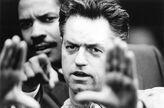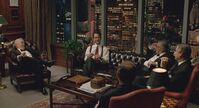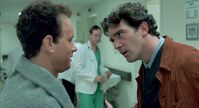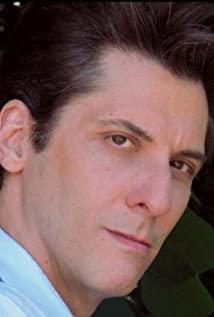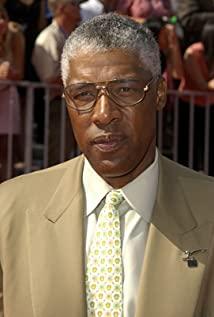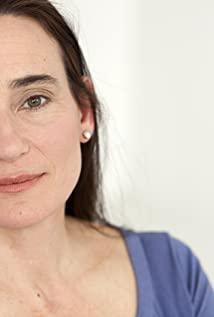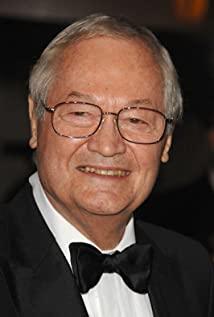When Andrew went to the hospital because of uncontrollable diarrhea, his boyfriend, Miguel, put down his teaching job, trotted all the way, and rushed to the hospital, panting to ask if his lover had been checked. Andrew said that he was almost incontinent in front of other people, Miguel looked at Andrew and said firmly, so what, there is nothing to be ashamed of.
The doctor told Andrew to have a colonoscopy on him. When Miguel heard it, he was anxious: "He doesn't want to do that kind of test unless we rule out other possibilities." Because colonoscopy is painful, Miguel doesn't want his partner to suffer. In the face of Miguel's fierce reaction, the doctor also became emotional: "Listen, you are not his immediate family, we can drive you out of the emergency room." Andrew calmed the tense atmosphere, and finally Miguel also told the doctor Apologize.
At Andrew's house party, the niece called "Uncle Andy" enthusiastically, and everyone was so happy. Andrew's mother smiled and hugged Andrew, but when Andrew turned around, her eyes became melancholy. Melodious music sounded, and Andrew danced with his mother. After the dance, Andrew and Miguel sat together, Andrew hugged his little nephew (daughter), and told his family about the upcoming court trial while breastfeeding him: "There may be some things you don't want to hear in future trials. Voice, regarding me and my private life, I want to make sure you are prepared." Andrew's brother said, "Thank you for your concern, I think the hardest thing is you." Andrew's brother said, "Anyway, you are me. My younger brother, this is the most important thing." Andrew's sister expressed concern for her parents that they would not be able to bear it. Dad said, "You and Miguel have had a lot of courage to face this, we won't be embarrassed, we'll just be incredibly proud of you." Mom said, "My kids won't be resigned, Come on and fight for your rights."
One night after the trial, Miguel gave Andrew a needle for an infusion, but the fluid couldn't get in. Andrew asked if he could skip therapy tonight as he had a lot of court business to deal with. Miguel said no, it was saving your life. "This is my hand, my treatment, I won't do it if I don't do it." Miguel grabbed the book in Andrew's hand angrily and threw it away, hoping that Andrew could give himself some time. "Are you worried that we're running out of time together? Do you know what I'm thinking? I'm thinking about my own funeral." Miguel suppressed his pain and ran to the kitchen to cook. He was heated by the hot stove. I had to quickly withdraw my hand.
Andrew is seriously ill, and family and friends have been with him at the bedside. That night, family and friends said goodbye to Andrew as they left the hospital. The elder sister looked at the younger brother tenderly and told him that she would come to see him again tomorrow. Dad kissed his son's forehead and let him rest. The elder brother smiled and looked at the younger brother on the hospital bed, looked at him, couldn't help but fell on his younger brother's chest and cried. Mom hurried over to help my brother up and comforted him not to worry. Miguel sent the others away, closed the door of the ward, looked at her boyfriend extremely tenderly, and kissed her boyfriend's hand desperately, with tears in his eyes. "I think I'm ready," Andrew said weakly. Miguel nodded firmly.
Throughout the whole film, there is no fear of AIDS demons and avoidance of death, and no accusation and disgust of the person involved. I feel a calm atmosphere, a tranquility under the shadow of death - after all, people are just people People are inevitably afraid in the face of death, but the support of people around them and the warmth of lovers, family members and friends are enough to peacefully face what has happened and what will happen, no matter how unbearable, the warmth Enough to support people to face gracefully and calmly.
Social isolation seems more unbearable than physical death. When Andrew walked through 9 law firms and was rejected, he said goodbye to lawyers gracefully: "Thank you for your time". Andrew walked downstairs, and as far as his eyes could see, the autumn golden leaves in Philadelphia were falling, and the cool breeze was rustling. His eyes wandered, and tears rolled in his eyes—that was the feeling of powerlessness after failing after many attempts, and that was the sad feeling of being treated differently.
At the library in Philadelphia, the service staff brought AIDS-related books for Andrew and asked, seemingly politely, "We have a separate reading room, would you be more comfortable there?" "If I go there, Would you be more comfortable?"
In the early 1990s, the AIDS virus was only recently isolated, and there was no good cure. The fear of AIDS, and the stigmatizing association between AIDS and homosexuality, has brought great social pressure on homosexuality.
Without the support of a partner, family, and friends, how would a homosexual, a homosexual with AIDS, stand in society? "Philadelphia Story" shows us a near-ideal intimacy. In the face of Andrew's serious illness, Miguel, as a partner, never leaves, always accompanies him, and always cares about Andrew's body and life; his parents unconditionally support Andrew's love and defending rights, and feel unparalleled pride for Andrew; brothers and sisters also always stand with Andrew, and Andrew's most important identity is always their brother.
Randy Shields documents a couple in the non-fiction book Cry of the Century, one of whom has AIDS. The process of caring for a patient is long and grueling. "At night, I slept in the same hospital bed as him, and his body still made me sexually aroused, even though I haven't been sexually aroused for a long time."
This warmth is Andrew's calmness and the source of his concern. The beauty of life, the company of partners, the care of parents, the support of brothers and sisters, what a good age this should have been, with infinite possibilities of life. AIDS overshadowed everything. Thousands of nostalgia were transformed into a free release in the opera "Andre Chenier" - the record player played melodious and profound music, Andrew held the infusion bottle in one hand, and swayed tears with the rhythm of the music. Full face: "It's everything around me, blood and sand, I'm the son of the gods, I'm the water of Wangchuan, I'm God, I came from heaven to the world, I turned the world into heaven, I'm love..."
No matter how much nostalgia for life, after all, we still have to face the painful reality. It is precisely because he can get the most powerful strength from the closest people, Andrew can calmly say to Miguel on the last night: "I think I am ready."
In addition to regret, I also envy Andrew for being able to feel the most intense love from those who love him most in the last moments of his life. It is this precious warmth that gives him the power to defend his rights and overthrow the unfair treatment of himself; it is this precious warmth that allows Andrew to calmly think about life and death and leave the world without regrets , to pursue the ideal afterlife - it must be a beautiful paradise with no gender and no AIDS.
View more about Philadelphia reviews




